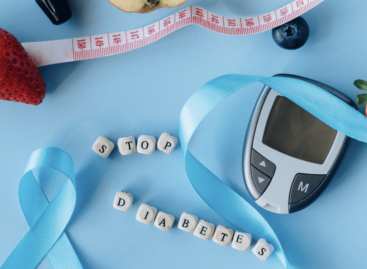What is the scientific truth behind fasting?
The forty-day Lent before Easter has begun, but at this time many people, regardless of religion, start a juice fast or detox in order to get in shape for spring. Intermittent fasting, when eating and fasting alternate every day, is becoming increasingly popular these days. But is there any scientific truth behind fasting? The National Association of Hungarian Dietitians answers this question.

People have always searched for the source of eternal youth and renewal, so it is not surprising that diets, cures, and methods that promise not only rapid weight loss but also turning back the wheel of time are very popular. The most popular of these today are intermittent fasting, i.e. the autophagy diet.
Scientific background of the method
Autophagy comes from the Greek words autos (self/own) and phago (eat/wall), meaning self-digestion. This refers to the self-destructive process of cells, which removes and recycles damaged cell components. With an everyday example, this is like when we renovate our car by replacing some parts. The tiny cellular structures behind autophagy were already discovered in the 1950s, but the scientific breakthrough was achieved by the Japanese cell biologist Osumi Josinori, who was awarded the Nobel Prize in Physiology or Medicine in 2016.
And how does fasting come into the picture? So that the process of autophagy is stimulated by a hormone, glucagon, which is released during reduced nutrient intake or starvation. Starvation also stimulates the production of growth hormone, and the two hormones together result in cell renewal.
Related news
Diabetes: the key to prevention is “smart” carbohydrates and fiber – MDOSZ has published a fresh summary
🎧 Hallgasd a cikket: Lejátszás Szünet Folytatás Leállítás Nyelv: Auto…
Read more >Festive menu planning made easy with Nébih’s No Leftovers portion calculator
🎧 Hallgasd a cikket: Lejátszás Szünet Folytatás Leállítás Nyelv: Auto…
Read more >Related news
Every second German drinks plant-based
🎧 Hallgasd a cikket: Lejátszás Szünet Folytatás Leállítás Nyelv: Auto…
Read more >Tourism Business Index: improving sentiment, but the sector remains in the red
🎧 Hallgasd a cikket: Lejátszás Szünet Folytatás Leállítás Nyelv: Auto…
Read more >Levente Balogh announces a revolution in the quality dairy products market
🎧 Hallgasd a cikket: Lejátszás Szünet Folytatás Leállítás Nyelv: Auto…
Read more >








